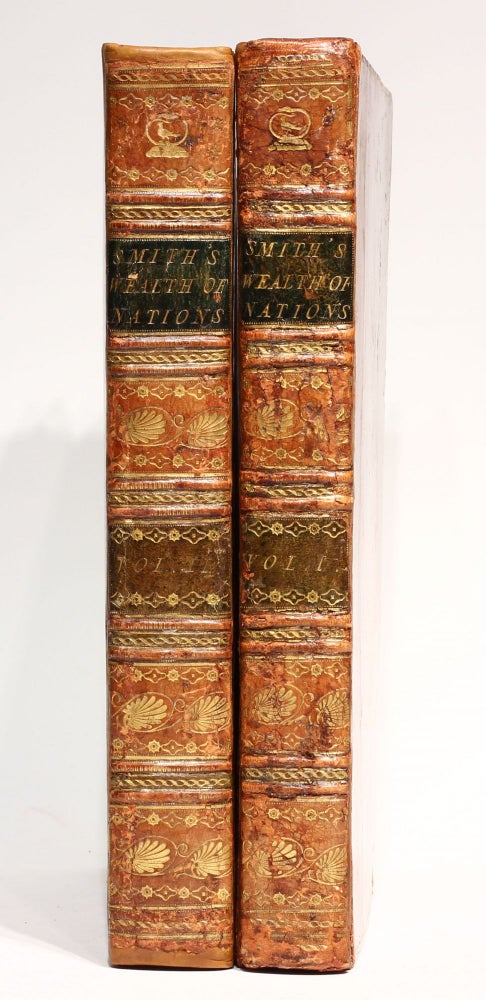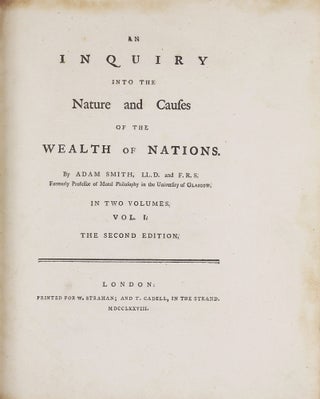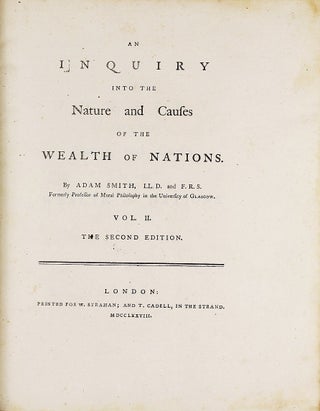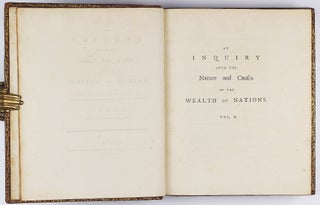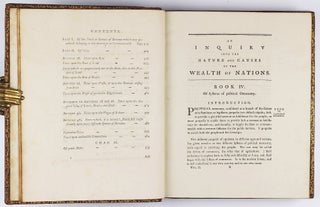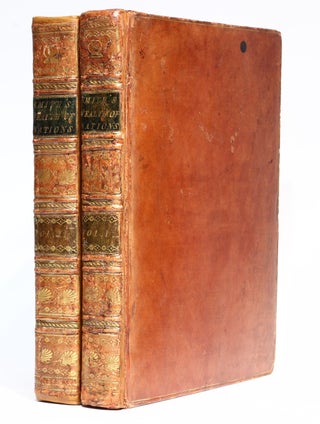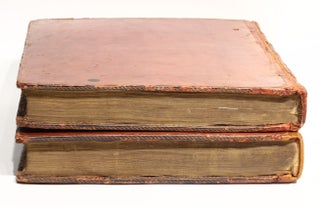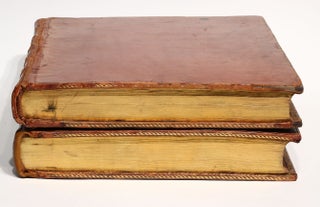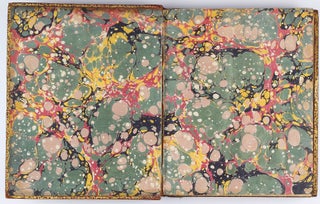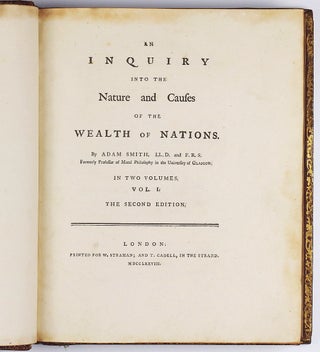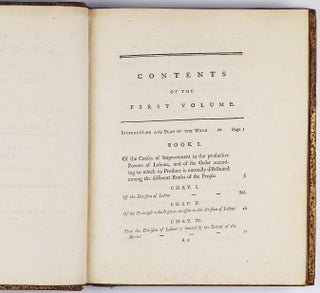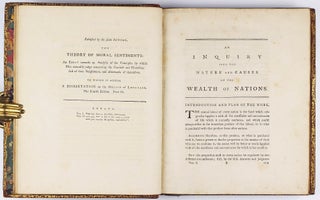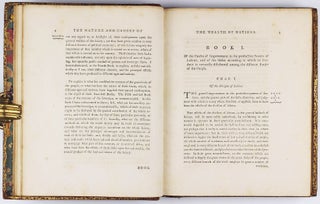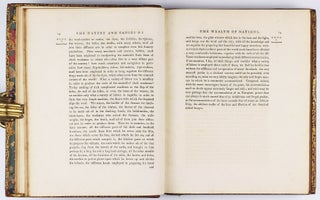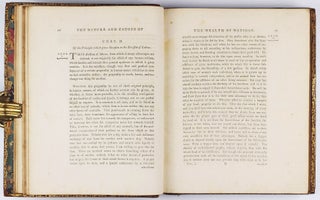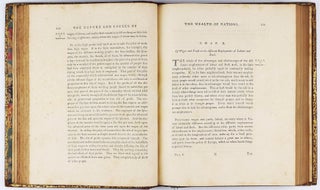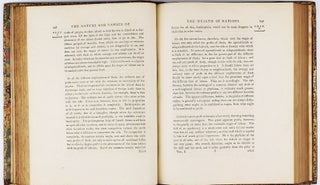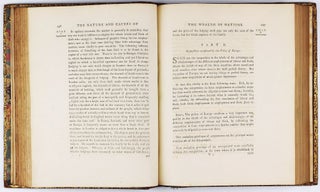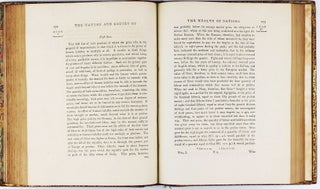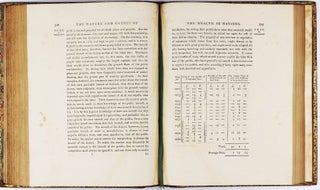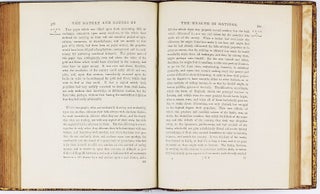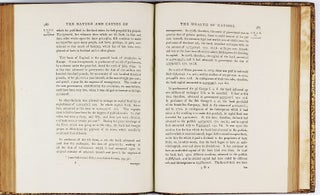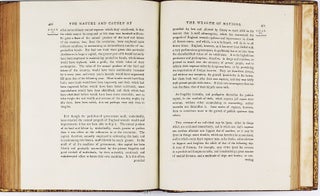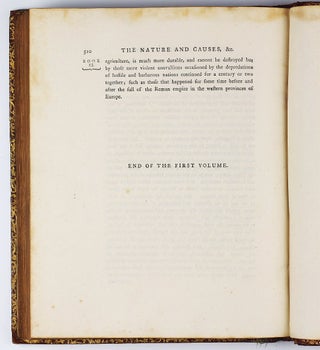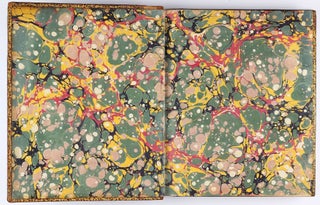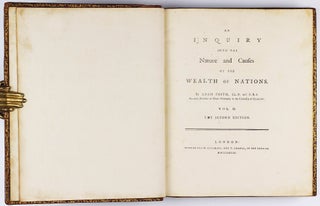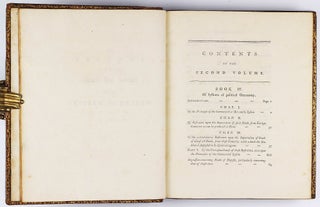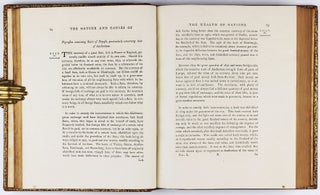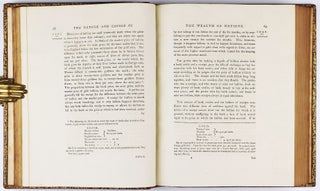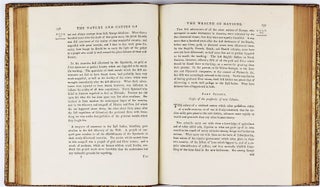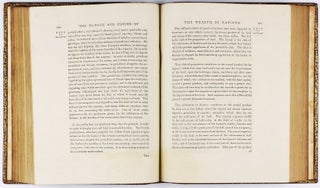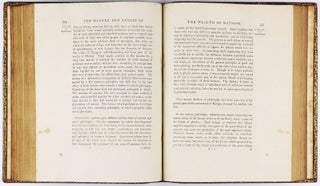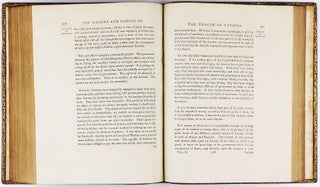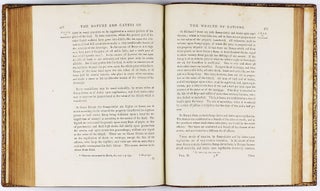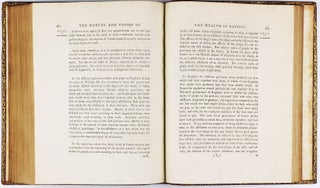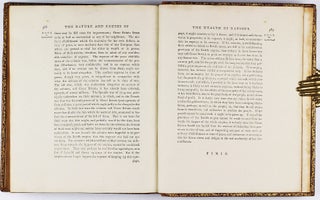An Inquiry into the Nature and Causes of the Wealth of Nations.
London: printed for W. Strahan and T. Cadell, 1778.
2nd Edition. Hardcover. Near Fine. Item #002885
Two volumes. 4to (283 x 228 mm). [8], 510; [8], 589 [1] pp., including half-title in vol. II (no half-title called for in vol. I). Leaf Ee3 misbound after Ee1 in vol. I, half-title in vol. II bound after title. Contemporary polished calf, spines gilt-decorated in compartments and with gilt-lettered morocco labels, board edges tooled in gilt, marbled endpapers, all edges gilt (hinges and spine ends repaired, corners worn, extremities rubbed). Very little browning of text, occasional minor spotting, but generally clean and crisp. Tears without loss to margins of leaves Nn3 and Tt3 in vol. I and leaf Ddd1 in vol. II. Provenance: From the library of Peter Bauer (1915-2002), developmental economist and late Emeritus Professor at the London School of Economics. An excellent and extremely wide-margine copy in original binding. ----
Goldsmith 11663; Grolier, 100 English, 57; Einaudi 5329; Kress B154; cf. PMM 221 (first edition). - RARE SECOND EDITION and the only other edition to be published in quarto format. Adam Smith (1723-1790) spent ten years in the writing and perfecting of The Wealth of Nations. "The book succeeded at once, and the first edition was exhausted in six months ... Whether it be true or not, as Buckle said, that the 'Wealth of Nations' was, 'in its ultimate results, probably the most important that had ever been written' ... it is probable that no book can be mentioned which so rapidly became an authority both with statesmen and philosophers" (DNB). "The history of economic theory up to the end of the nineteenth century consists of two parts: the mercantilist phase which was based not so much on a doctrine as on a system of practice which grew out of social conditions; and the second phase which saw the development of the theory that the individual had the right to be unimpeded in the exercise of economic activity. While it cannot be said that Smith invented the latter theory ... his work is the first major expression of it. He begins with the thought that labour is the source from which a nation derives what is necessary to it. "The improvement of the division of labour is the measure of productivity ... Labour represents the three essential elements - wages, profit and rent - and these three also constitute income. From the workings of the economy, Smith passes to its matter 'stock' which encompasses all that man owns either for his own consumption or the return it brings him. The Wealth of Nations ends with a history of economic development, a definitive onslaught on the mercantile system, and some prophetic speculations on the limits of economic control. Where the political aspects of human rights had taken two centuries to explore, Smith's achievement was to bring the study of economic aspects to the same point in a single work. The Wealth of Nations is not a system, but as a provisional analysis it is completely convincing. The certainty of its criticism and its grasp of human nature have made it the first and greatest classic of modern economic thought" (PMM). The second edition is the rarest of the early editions of Wealth of Nations, of which only 500 copies were printed. A number of these sheets for this edition may well have been used from the first edition of 1776. "The second edition exhibits a number of alterations large and small, some providing new information, some correcting matters of fact, some perfecting the idiom, and large number now documenting references in footnotes" (William B. Todd, in the 1976 Oxford edition of The Wealth of Nations). - Visit our website for additional images and information.
Sold
Delivery time up to 10 days. For calculation of the latest delivery date, follow the link: Delivery times
Lieferzeit max. 10 Tage. Zur Berechnung des spätesten Liefertermins siehe hier: Lieferzeiten


